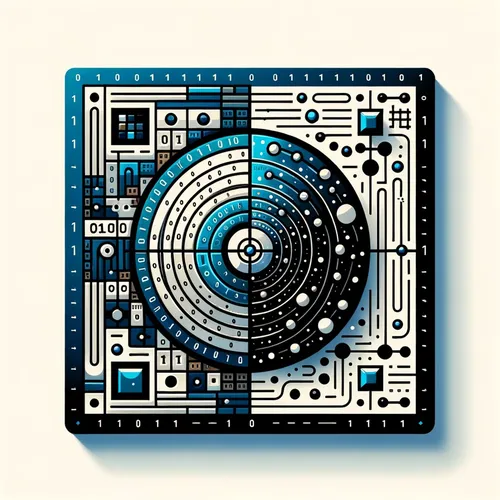Quantum Leap: Modular Chips Rewrite the Rules of Scaling Up
- Author
- Quiet. Please
- Published
- Sun 31 Aug 2025
- Episode Link
- https://www.spreaker.com/episode/quantum-leap-modular-chips-rewrite-the-rules-of-scaling-up--67571901
This is your Quantum Bits: Beginner's Guide podcast.
This week, the rules of scale in quantum computing just got rewritten. My name is Leo, Learning Enhanced Operator, quantum specialist and your narrator for Quantum Bits: Beginner’s Guide. Today, I can’t help but marvel at the latest quantum programing breakthrough—a result that could reshape how we build, program, and ultimately use quantum computers.
Imagine you’re watching a city at rush hour, all the roads jam-packed—but then, a new bridge opens, letting traffic flow and the whole skyline begins to pulse with life. That’s what happened, metaphorically speaking, in the world of quantum hardware this week. A team at the University of California, Riverside demonstrated that we don’t need perfect hardware to create large, fault-tolerant quantum computers. Instead, they showed that we can link together several small, high-fidelity quantum chips into what is, functionally, a single, reliable processor—even if the roads, or connections, between them are far noisier than the chips themselves. It’s as if the traffic jam doesn’t matter anymore because the bridge is designed to handle it.
In their simulations, connections could be up to ten times noisier than individual chips, yet the aggregate system could still run robust quantum error correction—thanks to a clever use of the surface code, one of the leading error-resilience schemes in our field. Lead author Mohamed Shalby put it best: this isn’t about a new chip; it’s about showing the chips we already have can be “networked” to scale up easily, without waiting for mythical perfect conditions. This opens the door to rapid expansion, making quantum programming far more practical and accessible than before.
This news comes amid a global flurry of quantum progress: Japan just launched its fully homegrown quantum computer at Osaka University, built entirely with Japanese hardware and software. IBM and AMD announced a partnership pooling quantum processors and classical supercomputing power. But what excites me about the modular chip technique is its impact on you, the programmer or curious technologist. Instead of wrestling with the ever-present errors from delicate qubits, you’ll have the flexibility to orchestrate programs across distributed chips—each with its own quirks, yet all acting harmoniously. Writing quantum code will feel less precarious, more like threading together robust blocks than tiptoeing through a minefield.
I see quantum computers soon scaling the way cities grow: with bridges, overlapping alleys, and surprising shortcuts—messy, yes, but resilient. Just as our world can’t wait for a perfect day to build, quantum technology won’t wait for perfect hardware to change history.
Thank you for joining me on Quantum Bits: Beginner’s Guide. If you have a question or a topic you want featured, email me at [email protected]. Don’t forget to subscribe, and remember, this has been a Quiet Please Production. For more, check out quietplease.ai.
For more http://www.quietplease.ai
Get the best deals https://amzn.to/3ODvOta
